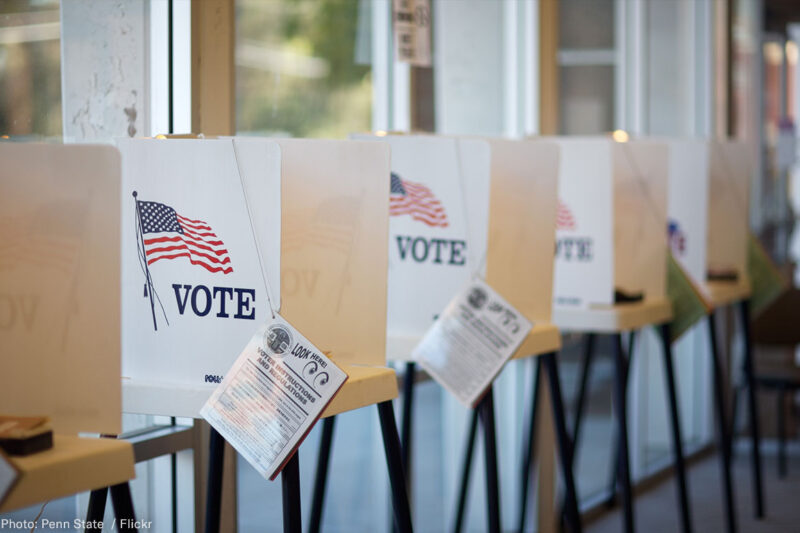
After years of work by activists, stakeholders, community groups, and lawmakers, Gov. Jay Inslee signed the Washington Voting Rights Act into law. This historic legislation paves the way for communities across Washington state to find local solutions for an issue that has existed since the founding of our democracy — how to ensure minority representation in a system of majority rule.
The WVRA improves voting rights by expanding on the protections of the federal Voting Rights Act of 1965. Most local elections in Washington currently use an at-large system where the entire community chooses who represents them on multi-member bodies such as city councils, school boards, and port districts. In areas where polarized voting occurs, at-large elections may prevent a minority group from electing any candidates that represent their community. Because the votes of the minority group become diluted in the at-large system, the makeup of the elected body does not truly reflect the community it is supposed to represent. This has had damaging effects on people of color in Washington and around the country.
For example, the ACLU of Washington sued the city of Yakima, Washington, which was found to be in violation of the federal Voting Rights Act. No Latino official had ever been elected to the city council despite the fact that over 40 percent of the city’s population is Latino. Because Yakima held at-large elections, this entire community was effectively shut out of council elections and having a voice in city government. The alternative used to fix this imbalance was switching to district-based elections, which divided the city into districts from which members of the legislative body were chosen. Because these districts were drawn to better reflect the demographics of Yakima than a single at-large district, the resulting elected body can now more accurately represent the population it serves. In the first election after Yakima switched to district-based elections, three Latina candidates were elected to the city council.
Yakima’s history isn’t unusual. Cities and counties from to also used at-large voting systems that undermined the representation of minority groups, and they were challenged in the courts by activists.
Before the WVRA, only charter cities or counties could change their election systems.* Other local governments had two options: hold a vote to become a charter city or county or undergo a lawsuit, both expensive and time-consuming options. This law now empowers communities to voluntarily reform their election systems without resource-draining litigation.
Any voter in a community who feels that the local election system results in polarized voting can contact the local government and discuss the potential violation and a proposed remedy. The local government and the community member can then work together to find a solution that fixes the problem. Once the prescribed collaboration period has run, if the community and the local government cannot agree on a remedy, then the community member could file a lawsuit in state court. While district-based elections could respond to allegations of polarized voting, the WVRA does not limit the possible solutions, but instead allows room for creativity in developing the proper remedy for each individual community.
Activists with ACLU’s People Power like me worked to support the WVRA as part of the nationwide Let People Vote campaign, which began in October. We and our partners reached out to state lawmakers, attended committee hearings at the statehouse, and advocated for this change through grassroots organizing in our local communities alongside allies in the .
In tumultuous times, we need to find solutions to common problems while ensuring rights and representation for everyone. Washington’s new voting rights law will help to do just that. Its passage shows that committed activism makes our democracy stronger and more representative.
CORRECTION: An earlier version of this post incorrectly stated that there was no mechanism for local governments to change their elections systems before the passage of the Washington Voting Rights Act. Under prior law, charter cities and counties could change their elections systems, but other local governments had to either hold a vote to become a charter city or county or file a lawsuit.



